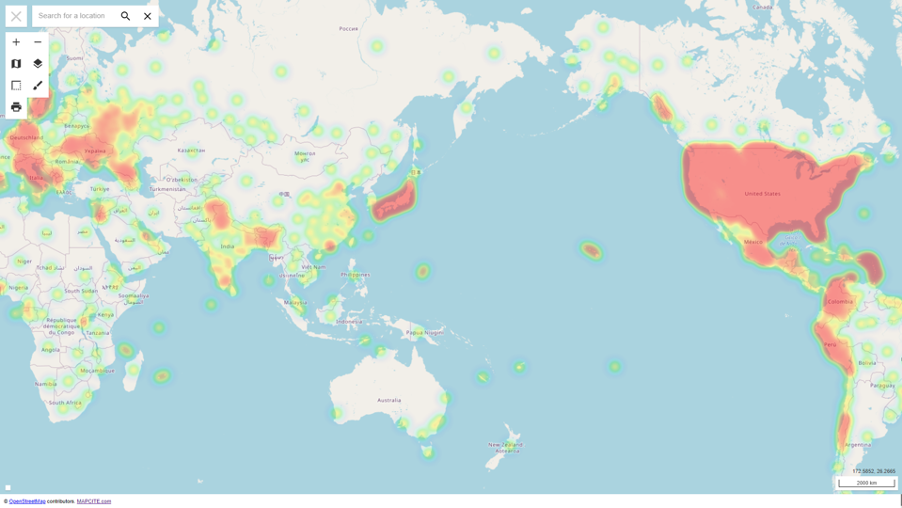Over the last week or so I have been asked repeatedly “How could you use Mapcite to help with Covid-19”.
The data being generated is at best to the city level and more commonly at the country level. Consequently most maps of the Corona Virus I have seen colour the entire region or country affected with red.
We were asked by a client to produce a heatmap on the virus, and the visual was similar.

As illuminating as these maps are, do they serve any purpose? Maybe but…
This morning a map I saw had Brazil in red (with one confirmed case at the time of writing), with China the same shade and weight of red despite over seventy-eight thousand confirmed cases.
As a company with the ability to map big data down to the individual location, we discussed how we might help.
The idea? Crowdsource!
An open, community-driven map where people could use our mobile app to register:
- general location
- did they have the virus
- were they unwell or feeling sick
- if they were in good health
- age
- recent trips
Sharing this data would enable us to explore and try to predict the probable movement of the virus. Yes, this is achievable and we did something similar way back with H1N1.
I even modified the Mapcite Mobile App to enable it to collect the relevant data and it works perfectly.
So there I was with some heavy-duty but easy to use technology. Ready to globally crowdsource Covid-19 unwell and healthy people.
It was a noble idea but was quickly challenged both at home and from within the company.
“This would be a GDPR, Data Shield etc nightmare. My personal data – NO WAY”
“You will create panic”
“The idea is sound but would be abused and distorted by malignant actors”
“Who would want to identify themselves as a carrier/patient? Would there not be some social shaming? #Superspreader”
These are all valid points and enough for us to decide against doing it.
Was that the right thing to do?
If there is a technology that could draw a much deeper picture of virus spread, that was open and free – should the concerns outlined above pale in comparison?
The financial markets are at their worst since the last global crash. Warnings have gone out that public healthcare won’t cope with a pandemic, that tourism and travel will be irrevocably damaged. All while the virus is at less than four-thousand cases outside of China (at the time of writing).
Most probably, no single company could stem the flow of the spread. It would be naïve to think so, but it frustrates me thinking about how social politics can create an impenetrable wall for potential solutions.
In scenarios as extreme as this, I would like to think global co-operation for the greater good trumps personal interest. That is, perhaps, the most naive thought of all.
